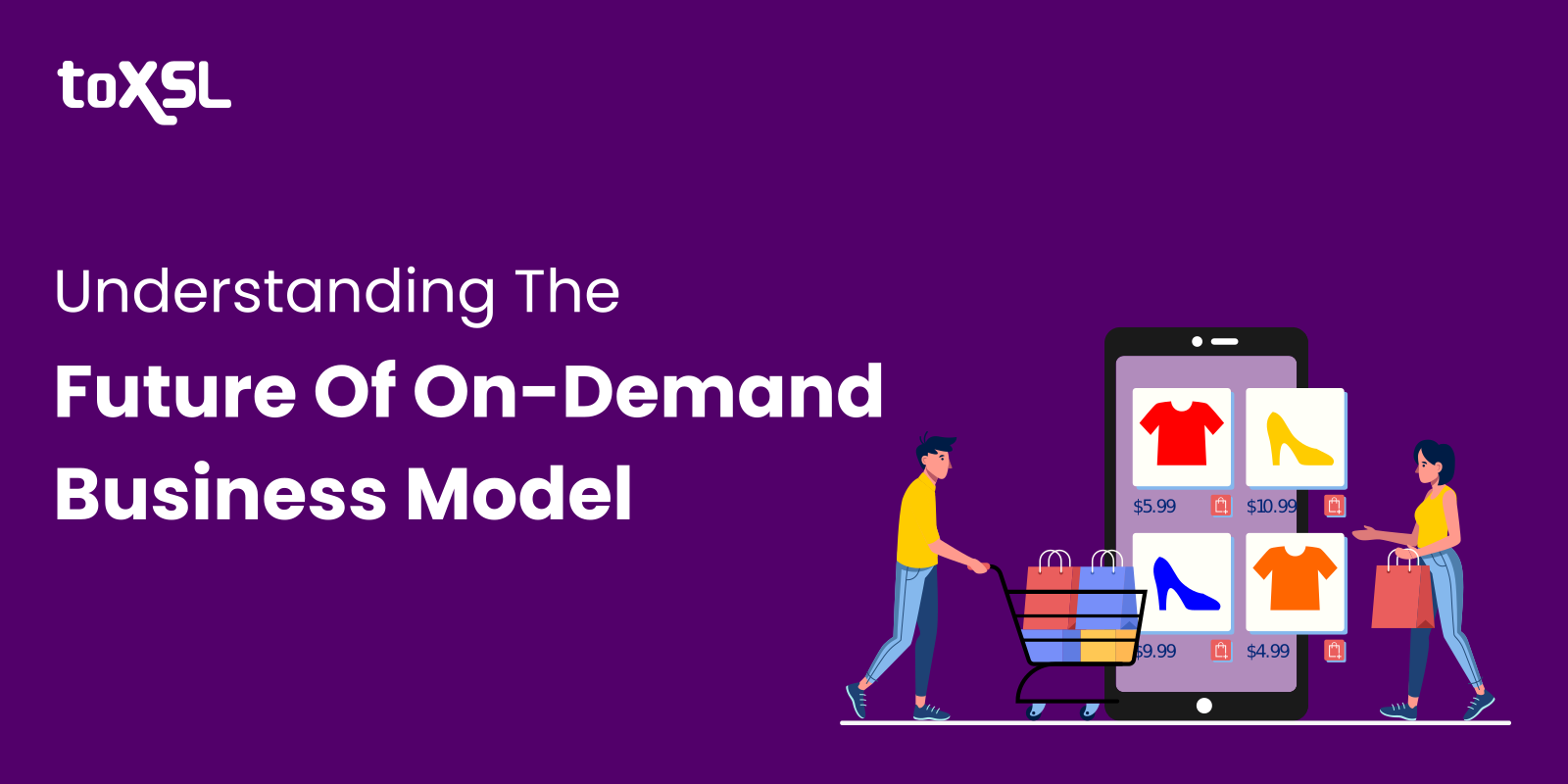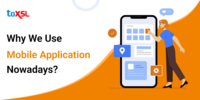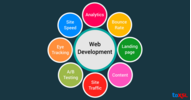- Nov 15, 2021
Share this post on:

Due to the continuous advancements in technology, there is a shift in the business paradigm. The introduction of online interactions and applications has become the heart of the business. And with time, quality, and accessibility on-demand business model has become the first choice for entrepreneurs and aspiring startups.
The on-demand economy has become a part of several sectors that includes food delivery, healthcare consultation, laundry, cab booking services, and a lot more. With the expansion today, it has become one of the most revenue-generating economies. Moreover, it is reshaping and the entire world and making the services convenient around.
The on-demand business model has seen drastic growth, and as per Harvard Business Review, it is now attracting more than 22.4 million customers, and the spending has now reached $57.6 billion.
This article offers a complete guide for entrepreneurs and startups to start with their on-demand businesses. Read it out to explore the on-demand business model, how it is taking the industry by a storm, and the current scenario.
What is an On-Demand Business Model?
Talking about the on-demand business model, what is the first thing that comes to your mind? Uber, right. In brief, on-demand economy allows the users to fulfill their needs when they want in minimal time. These services instantly deliver the services at the doorsteps of the consumers.
It offers the ideal solutions for the users who want to seek the services flexibly and conveniently. As the potential of the on-demand market continues to rise, businesses opt for solutions to invest in solutions. The services are digital, and it gives the users ease to perform any action. Check out the statistics and know - how on-demand business model is demanding and will always be.

There are generally three types of on-demand business models and includes:
1. Customer to Customer (C2C)
In this model, a customer requests a service or product from a person.
2. Business to Customers (B2C)
This model allows customers to avail themselves of the services or products from businesses.
3. Business to Business (B2B)
This model connects different kinds of businesses.
Most Successful On-Demand Solutions
1. On-Demand Food Delivery
The food delivery applications such as Swiggy and Zomato have changed the entire scenario. It offers an easy way for users to order food anytime and anywhere with just a few taps from their mobile phones. After the restaurant's closure because of the pandemic, these applications gained even more popularity. Developing an on-demand food delivery application with an excellent business model is a great idea for businesses.
Also Read: Things You Must Consider While Developing an On-demand Food Delivery App.
2. On-Demand Logistics
On-demand logistic applications offer great relief to the users and the businesses as well. The item ordered is carried and delivered the same day. FedEx is among the best examples that make the delivery faster for the users. As per research from GlobeNewsWire, the on-demand logistic business will be worth $75 billion by 2030. Therefore, it is a good idea to invest in the on-demand logistic industry that helps to save time and money. Also, it helps the users to track their deliveries in real-time.
3. On-Demand Health and Medicine
As we all are aware of the current pandemic scenario, the role of on-demand health applications rises even more. It helps doctors and patients to stay connected anytime and anywhere.
It is like your regular visits to the doctor and getting consultation over video/audio calls. The doctor diagnoses the problems and makes recommendations as per the needs.
Also, the medicine delivery applications allow the customers to order the medicine they want and deliver it to the doorsteps. Know, more with us!
4. Service On-Demand
Home services, salon booking services offer ease to the users and are accessible anytime. These applications serve the ultimate purpose and fulfill the requirements of the consumers. One of the examples includes Urban Company.
5. On-Demand Taxi Services
UBER is one of the most popular on-demand cab service apps with a broad customer base and is highly popular. And a few reasons for the popularity are instant booking of the cab, offers Security, easy navigation, tracking driver in real-time, allowing you to give feedback, easy in-app chat/call, and more. With all these features available, customers love the cab service applications. You can develop your app like Uber!
Key areas to address before On-Demand App Development
Selecting the right business model has a vast impact on profit and is the ultimate reason for the success of your business. Here are a few most commonly asked questions for on-demand business models that you should focus on:
1. Instant or Scheduled Delivery
It is a crucial decision that businesses have to make in terms of offering real-time services and deciding whether to offer the instant model or not. For example, if you are developing a cab booking application, you can allow the users to book the cab at the same time or some other date.
No matter what your decision is, you can always make the necessary changes and have the option of expansion.
2. Delivery Agents or Partners
It is another crucial business model, whether you will be supporting the associated partner or letting them handle the delivery by themselves.
Food delivery service is an amazing example of this business model. There are two ways to make a business model for food delivery. You can have your riders get the food delivered, or you can rely on a restaurant delivery person for the same.
3. Anonymous or Preference
One of the examples of such a business model is Urban Clap. It allows you to choose your service provider based on genuine ratings and reviews.
On the other hand, if you book an Uber, there may be an anonymous driver at your doorstep. Also, you do not have an option here to choose your car model.
It is one of the best examples that differentiates between the anonymous business model or based on preferences.
The Success of the On-Demand Economy for Startups
As there is an increased demand for these applications, businesses are all set to adapt to the changing on-demand business models. A few of the reasons for the success of these applications are:
1. Technological Advancement
With the digital revolution on the rise, on-demand business models are becoming more advanced. With the introduction of smartphones, the use of applications grew. From ordering food online to book a cab, the user expects convenient and budget-friendly services at their doorstep.
2. Competitive Advantage
Competition is high, but with the smart on-demand business model, you can gain a competitive edge. The success of the on-demand economy has resulted in better customer service, a boost in quality services, and other values as well.
3. Seamless User Experience
More people are becoming loyal to these applications because the app offers the best user experience. Because of this reason, entrepreneurs/startups are trying to fulfill the demands of the users and bring something new every time.
The future of On-demand Business Model
Now, you know the scope of the on-demand business model and the market you wish to enter. The on-demand app economy will continue to dominate the market because of the rise in consumer expectations and tech advancements.
The future of on-demand solutions seems brighter and makes the lives of people easier. If you are planning to enter the market, let us help you with the growth of your business by developing a perfect on-demand business app for you. Share your business idea and leave the rest to us.
Dreaming of developing your on-demand business application? Hire our developers!











